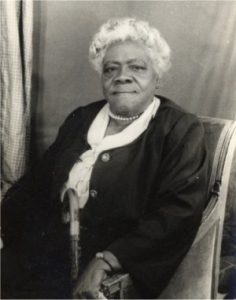The first reading for this week was a chapter in a larger text, called Sisters in the Struggle by Bettye Collier-Thomas and V.P. Franklin. The second chapter of this text focuses mainly on the double-edged sword that African American women were faced with in the middle 1900s. This time period hosted high racial tension, and also an incredible amount of inequality for women. Organizations like the National Council of Negro Women, aka the NCNW, fought for justice during these trying times. One of the actions the NCNW took that was truly admirable, was hosting voter registration campaigns. Although a nonpartisan organization, women like Mary Mcleod Bethune recognized and shared the importance of teaching women how to register to and vote. On page 36, she is quoted saying, “In all my talks throughout the nation I have urged women to set up block organizations to instruct women on how to register and vote.”
It is then pointed out that a prediction in The Washington Afro-American was accurate; “if a large number of women are enlisted through this action, the NCNW could indirectly contribute to a Truman victory.” (Collier-Thomas, Franklin 36). Actively pursuing a higher rate of women voters was just one action the organization took in its attempts to change the world for women, more specifically African American women. It is notable enough for me to talk about because I believe it is important to acknowledge that women still face inequality on a much lower scale, and an even further point; African American and Latina women are faced with inequalities in comparison to white women. The work of the NCNW was crucial in the history of African American women, and this chapter reflected the hardships that they worked so hard to change for the women to come after them. Although things are not as extreme in current times, there are similarities in the civil rights issues that they were dealing with and the ones we continue to face today.
The second reading for this week, Mexican Women on Strike in 1933: The Structure of Memory by Devra Anne Weber, demonstrates the way oral history and memory change through time, and how important it is to recognize this when studying/sharing history. History is complicated, because human beings are complicated; two people could experience the same situation, and interpret it in two completely different ways. This leaves a lot of room for confusion when studying historical events through solely oral history. Weber does an excellent job at pointing out how important those “personal narratives” are, but the overall theme in the text is to take them with a grain of salt. In the example of the strike in 1933, Weber points out that most of the story was centered around food- or rather, the lack thereof. She also discusses the inconsistencies in factual information that came from speaking with women who were there, like Mrs. Valdez. Overall, I find oral histories extremely fascinating because you get to know the feelings of someone who lived through an event you weren’t there for. However, it is clear there are issues with using only oral histories to come to a conclusion about a story.

